Skip to content
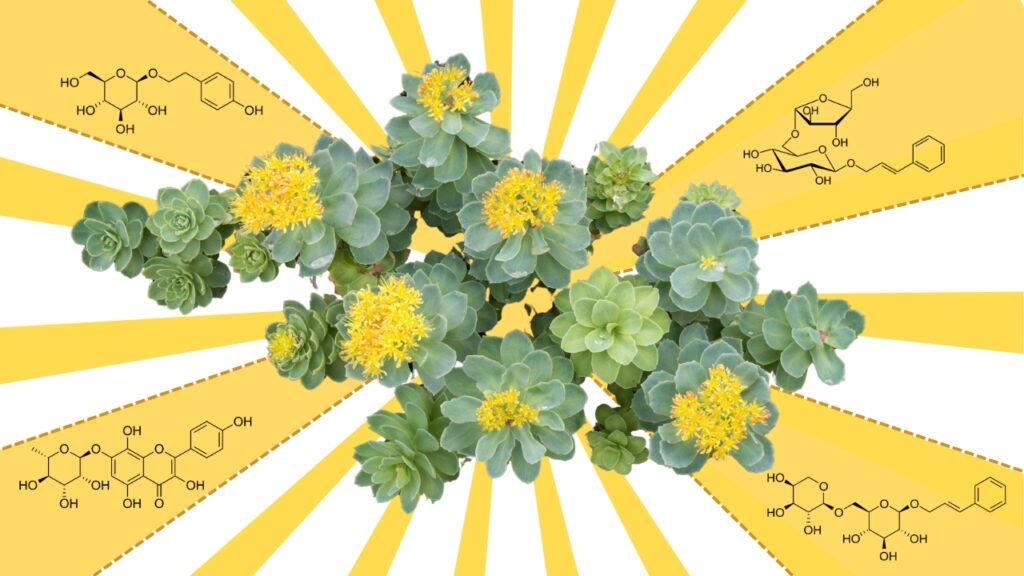 Plant cell-derived bioactives that improve health and wellness have taken center stage in the dietary supplement and food and beverage industries. The true power of these natural compounds lies not in a single, isolated molecule but in their collective synergy. This phenomenon, known as the entourage effect, emphasizes how consuming bioactives in their natural, full-spectrum […]
Plant cell-derived bioactives that improve health and wellness have taken center stage in the dietary supplement and food and beverage industries. The true power of these natural compounds lies not in a single, isolated molecule but in their collective synergy. This phenomenon, known as the entourage effect, emphasizes how consuming bioactives in their natural, full-spectrum […]
 Visit Ayana Bio at the Future Food-Tech, San Francisco, March 13-14, 2025 Come to see Frank Jaksch, Ayana Bio’s CEO, speak on the panel: Health Through Stealth: Enhancing Nutritional Density through Reformulation, Fortification & Bioactives Friday, March 14, 9:45 – 10:30
Visit Ayana Bio at the Future Food-Tech, San Francisco, March 13-14, 2025 Come to see Frank Jaksch, Ayana Bio’s CEO, speak on the panel: Health Through Stealth: Enhancing Nutritional Density through Reformulation, Fortification & Bioactives Friday, March 14, 9:45 – 10:30
 Ayana Bio opens new laboratory to commercialise cultivated ingredients – July saw plant cell technology company Ayana Bio announce the opening of a new lab situated in Boston’s Seaport district in Massachusetts, US.
Ayana Bio opens new laboratory to commercialise cultivated ingredients – July saw plant cell technology company Ayana Bio announce the opening of a new lab situated in Boston’s Seaport district in Massachusetts, US.
 The dietary supplement industry is experiencing significant growth fueled by a surge in consumer demand for high-quality, sustainable, and nutrient-rich products. The US dietary supplement market was valued at $53.58 billion in 2023 and is projected to grow at a compound annual growth rate (CAGR) of 5.7% over the next five years as consumers increasingly […]
The dietary supplement industry is experiencing significant growth fueled by a surge in consumer demand for high-quality, sustainable, and nutrient-rich products. The US dietary supplement market was valued at $53.58 billion in 2023 and is projected to grow at a compound annual growth rate (CAGR) of 5.7% over the next five years as consumers increasingly […]
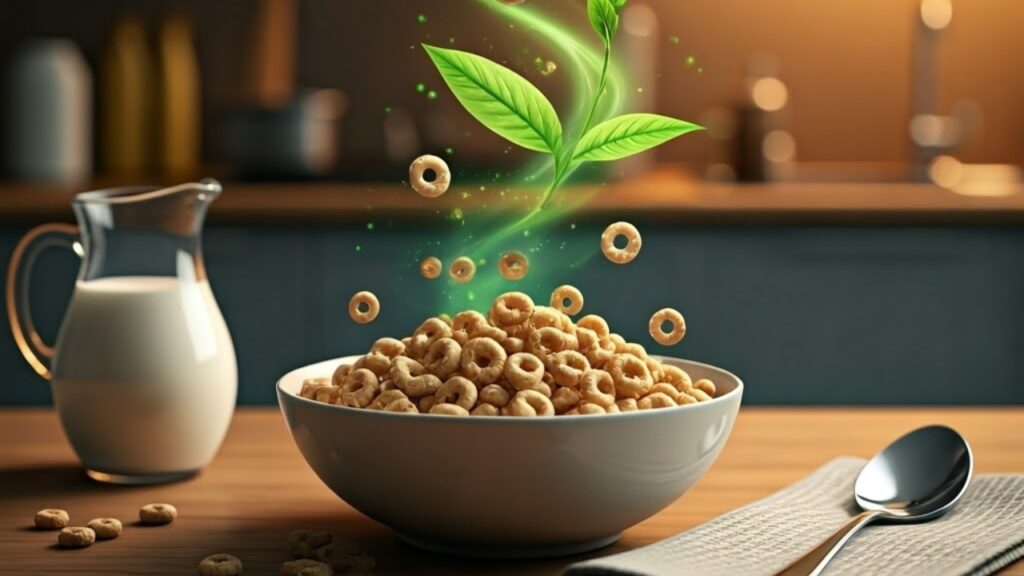 Ultra-processed foods (UPFs) dominate global diets and account for 57% of daily calories consumed by the average American, according to The British Medical Journal. The popularity of these highly processed foods can be attributed to their convenience, affordability, and extended shelf life. But UPFs often lack essential nutrients and are linked with health issues such […]
Ultra-processed foods (UPFs) dominate global diets and account for 57% of daily calories consumed by the average American, according to The British Medical Journal. The popularity of these highly processed foods can be attributed to their convenience, affordability, and extended shelf life. But UPFs often lack essential nutrients and are linked with health issues such […]

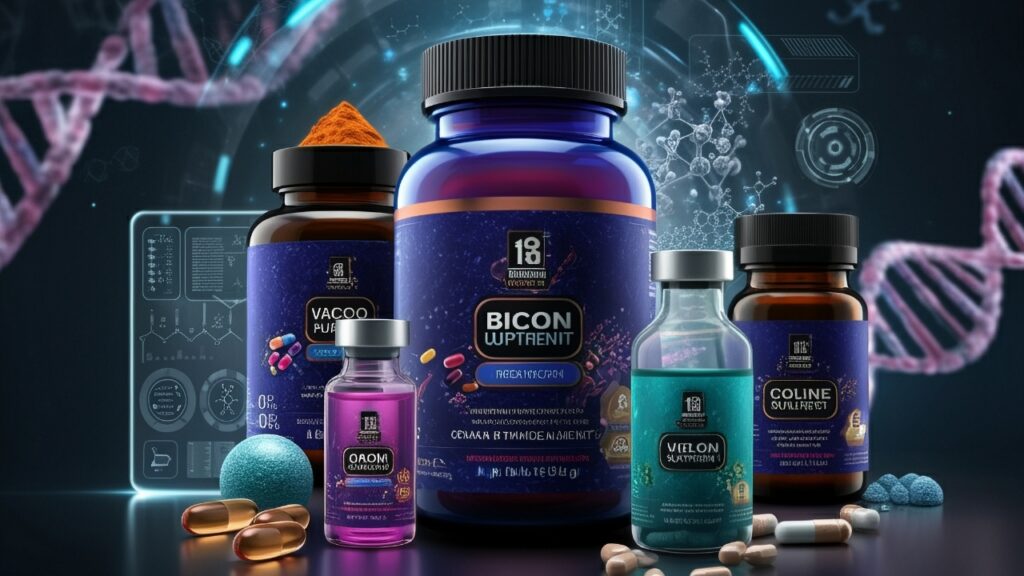 Consumers are demanding ethically sourced nutraceuticals: products that promote health and wellness without harming growers or the environment. As such, the nutraceutical industry has faced increasing pressure to adopt sustainable practices. Companies that prioritize sustainability— through ethical sourcing, green production, and advanced technologies—stand out in this competitive and evolving market. What Are Nutraceuticals? Nutraceuticals are […]
Consumers are demanding ethically sourced nutraceuticals: products that promote health and wellness without harming growers or the environment. As such, the nutraceutical industry has faced increasing pressure to adopt sustainable practices. Companies that prioritize sustainability— through ethical sourcing, green production, and advanced technologies—stand out in this competitive and evolving market. What Are Nutraceuticals? Nutraceuticals are […]
 Ayana Bio opens new laboratory to commercialise cultivated ingredients – July saw plant cell technology company Ayana Bio announce the opening of a new lab situated in Boston’s Seaport district in Massachusetts, US.
Ayana Bio opens new laboratory to commercialise cultivated ingredients – July saw plant cell technology company Ayana Bio announce the opening of a new lab situated in Boston’s Seaport district in Massachusetts, US.
 Companies are turning to more advanced production methods as the demand for sustainable, unadulterated, and consistent botanical ingredients grows. Plant cell cultivation and precision fermentation have emerged as leading technologies, each with unique benefits. However, plant cell culture stands out for its key advantages, including the ability to deliver full-spectrum bioactives in a more sustainable […]
Companies are turning to more advanced production methods as the demand for sustainable, unadulterated, and consistent botanical ingredients grows. Plant cell cultivation and precision fermentation have emerged as leading technologies, each with unique benefits. However, plant cell culture stands out for its key advantages, including the ability to deliver full-spectrum bioactives in a more sustainable […]
 Ayana Bio, the plant cell technology company dedicated to creating sustainable bioactives for consumer products, has received a grant from the National Center for Complementary and Integrative Health (NCCIH), part of the National Institutes of Health (NIH), to support Ayana Bio’s research into the production of saffron’s neuroprotective bioactives through plant cell cultivation.
Ayana Bio, the plant cell technology company dedicated to creating sustainable bioactives for consumer products, has received a grant from the National Center for Complementary and Integrative Health (NCCIH), part of the National Institutes of Health (NIH), to support Ayana Bio’s research into the production of saffron’s neuroprotective bioactives through plant cell cultivation.
 Plant biotechnology has taken center stage as the food and beverage, dietary supplement, and sports nutrition industries explore innovative solutions to produce sustainable and high-quality plant-derived ingredients. In particular, plant cell cultivation—aided by artificial intelligence (AI)—has emerged as a cutting-edge method. This approach allows for the rapid production of bioactives, providing industry players who seek […]
Plant biotechnology has taken center stage as the food and beverage, dietary supplement, and sports nutrition industries explore innovative solutions to produce sustainable and high-quality plant-derived ingredients. In particular, plant cell cultivation—aided by artificial intelligence (AI)—has emerged as a cutting-edge method. This approach allows for the rapid production of bioactives, providing industry players who seek […]
 Ayana Bio opens new laboratory to commercialise cultivated ingredients – July saw plant cell technology company Ayana Bio announce the opening of a new lab situated in Boston’s Seaport district in Massachusetts, US.
Ayana Bio opens new laboratory to commercialise cultivated ingredients – July saw plant cell technology company Ayana Bio announce the opening of a new lab situated in Boston’s Seaport district in Massachusetts, US.
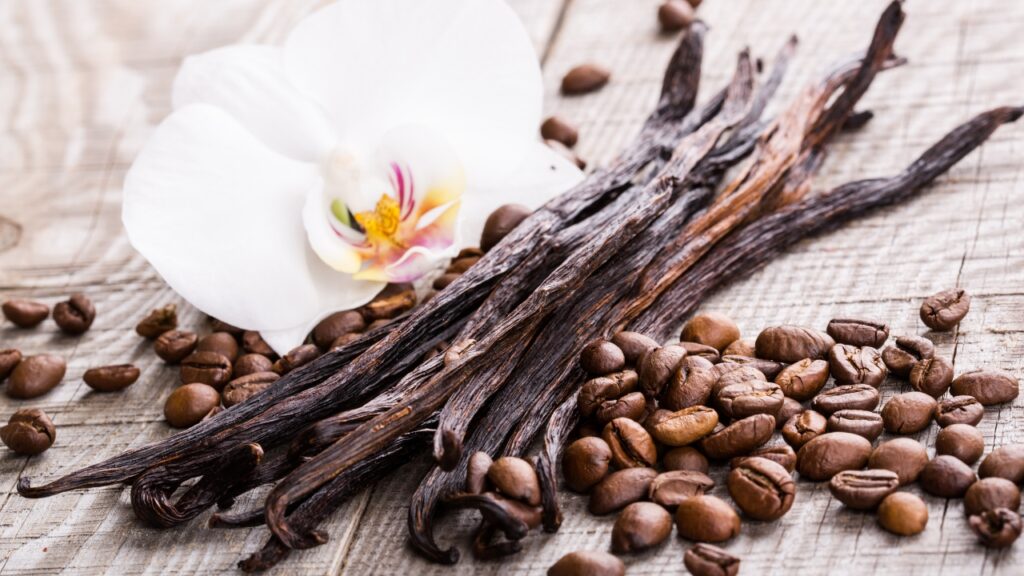 Written by Frank Jaksch, CEO, Ayana Bio Originally published by: Food Industry Executive Throughout history, populations have faced food shortages in response to global events like war, droughts, and famine. During World War I and II, sugar was rationed due to shipping disruptions, and agricultural production turned to different crops. In the early 2000s, Russia’s […]
Written by Frank Jaksch, CEO, Ayana Bio Originally published by: Food Industry Executive Throughout history, populations have faced food shortages in response to global events like war, droughts, and famine. During World War I and II, sugar was rationed due to shipping disruptions, and agricultural production turned to different crops. In the early 2000s, Russia’s […]
 Consumers seek out foods, beverages, and dietary supplements formulated with healthy ingredients found in nature. This demand busts open the door for opportunities with innovative plant-based products—especially ones with known health benefits. Combining nutrigenomics and plant cell cultivation technologies is reshaping how we access health-beneficial compounds (i.e., bioactives) from plants and deploy them in personalized […]
Consumers seek out foods, beverages, and dietary supplements formulated with healthy ingredients found in nature. This demand busts open the door for opportunities with innovative plant-based products—especially ones with known health benefits. Combining nutrigenomics and plant cell cultivation technologies is reshaping how we access health-beneficial compounds (i.e., bioactives) from plants and deploy them in personalized […]
 Ayana Bio opens new laboratory to commercialise cultivated ingredients – July saw plant cell technology company Ayana Bio announce the opening of a new lab situated in Boston’s Seaport district in Massachusetts, US.
Ayana Bio opens new laboratory to commercialise cultivated ingredients – July saw plant cell technology company Ayana Bio announce the opening of a new lab situated in Boston’s Seaport district in Massachusetts, US.
 Ayana Bio opens new laboratory to commercialise cultivated ingredients – July saw plant cell technology company Ayana Bio announce the opening of a new lab situated in Boston’s Seaport district in Massachusetts, US.
Ayana Bio opens new laboratory to commercialise cultivated ingredients – July saw plant cell technology company Ayana Bio announce the opening of a new lab situated in Boston’s Seaport district in Massachusetts, US.
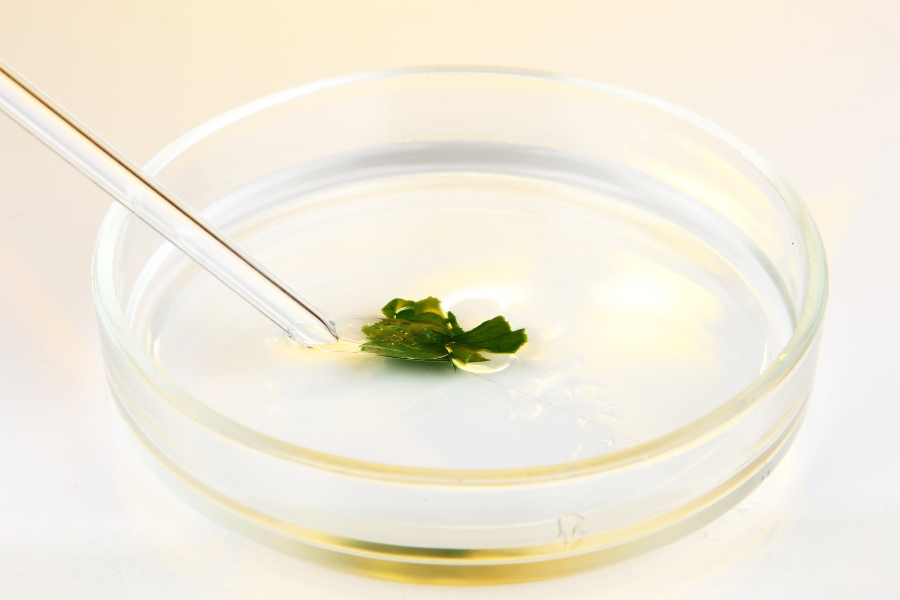 Understanding the Nature of Plant Cell Ingredients Health-conscious consumers are increasingly seeking products that are environmentally friendly and natural. The term “natural” carries significant weight in the dietary supplement, nutraceutical, and functional food industries. But what does “natural” truly mean? And can plant cell ingredients fit this definition? This blog defines “natural” and explores how […]
Understanding the Nature of Plant Cell Ingredients Health-conscious consumers are increasingly seeking products that are environmentally friendly and natural. The term “natural” carries significant weight in the dietary supplement, nutraceutical, and functional food industries. But what does “natural” truly mean? And can plant cell ingredients fit this definition? This blog defines “natural” and explores how […]
 Ayana Bio opens new laboratory to commercialise cultivated ingredients – July saw plant cell technology company Ayana Bio announce the opening of a new lab situated in Boston’s Seaport district in Massachusetts, US.
Ayana Bio opens new laboratory to commercialise cultivated ingredients – July saw plant cell technology company Ayana Bio announce the opening of a new lab situated in Boston’s Seaport district in Massachusetts, US.

 Ayana Bio, the plant cell technology company dedicated to creating sustainable bioactives for consumer products, has received a grant from the National Center for Complementary and Integrative Health (NCCIH), part of the National Institutes of Health (NIH), to support Ayana Bio’s research into the production of saffron’s neuroprotective bioactives through plant cell cultivation.
Ayana Bio, the plant cell technology company dedicated to creating sustainable bioactives for consumer products, has received a grant from the National Center for Complementary and Integrative Health (NCCIH), part of the National Institutes of Health (NIH), to support Ayana Bio’s research into the production of saffron’s neuroprotective bioactives through plant cell cultivation.
 Visit Ayana Bio at SupplySide West, at booth #7071 More details coming soon!
Visit Ayana Bio at SupplySide West, at booth #7071 More details coming soon!



 Processed foods have long been associated with negative health effects, primarily due to the presence of additives and preservatives. However, a recent survey conducted by Ayana Bio, a plant cell technology company, revealed that taste, ingredient quality, and convenience are the primary factors influencing Americans’ choices and willingness to pay more for processed foods. In fact, 74% of the surveyed participants stated that they would try an ultra-processed food if it offered health benefits such as improved sleep, immunity, or energy levels.
Processed foods have long been associated with negative health effects, primarily due to the presence of additives and preservatives. However, a recent survey conducted by Ayana Bio, a plant cell technology company, revealed that taste, ingredient quality, and convenience are the primary factors influencing Americans’ choices and willingness to pay more for processed foods. In fact, 74% of the surveyed participants stated that they would try an ultra-processed food if it offered health benefits such as improved sleep, immunity, or energy levels.


 Taste, ingredient quality and convenience are the most important factors to participants when it comes to choosing and paying more for processed foods, according to a survey of 2,000 American adults conducted by plant cell technology company Ayana Bio.
Taste, ingredient quality and convenience are the most important factors to participants when it comes to choosing and paying more for processed foods, according to a survey of 2,000 American adults conducted by plant cell technology company Ayana Bio.





 Processed foods have long been associated with negative health effects, primarily due to the presence of additives and preservatives. However, a recent survey conducted by Ayana Bio, a plant cell technology company, revealed that taste, ingredient quality, and convenience are the primary factors influencing Americans’ choices and willingness to pay more for processed foods. In fact, 74% of the surveyed participants stated that they would try an ultra-processed food if it offered health benefits such as improved sleep, immunity, or energy levels.
Processed foods have long been associated with negative health effects, primarily due to the presence of additives and preservatives. However, a recent survey conducted by Ayana Bio, a plant cell technology company, revealed that taste, ingredient quality, and convenience are the primary factors influencing Americans’ choices and willingness to pay more for processed foods. In fact, 74% of the surveyed participants stated that they would try an ultra-processed food if it offered health benefits such as improved sleep, immunity, or energy levels.


By using this website, you agree to our legal policy and the storing of cookies on your device to enhance site navigation, analyze site usage, and assist in our marketing efforts. View our Privacy Policy for more information.I ACCEPT
 Plant cell-derived bioactives that improve health and wellness have taken center stage in the dietary supplement and food and beverage industries. The true power of these natural compounds lies not in a single, isolated molecule but in their collective synergy. This phenomenon, known as the entourage effect, emphasizes how consuming bioactives in their natural, full-spectrum […]
Plant cell-derived bioactives that improve health and wellness have taken center stage in the dietary supplement and food and beverage industries. The true power of these natural compounds lies not in a single, isolated molecule but in their collective synergy. This phenomenon, known as the entourage effect, emphasizes how consuming bioactives in their natural, full-spectrum […]  Visit Ayana Bio at the Future Food-Tech, San Francisco, March 13-14, 2025 Come to see Frank Jaksch, Ayana Bio’s CEO, speak on the panel: Health Through Stealth: Enhancing Nutritional Density through Reformulation, Fortification & Bioactives Friday, March 14, 9:45 – 10:30
Visit Ayana Bio at the Future Food-Tech, San Francisco, March 13-14, 2025 Come to see Frank Jaksch, Ayana Bio’s CEO, speak on the panel: Health Through Stealth: Enhancing Nutritional Density through Reformulation, Fortification & Bioactives Friday, March 14, 9:45 – 10:30  The dietary supplement industry is experiencing significant growth fueled by a surge in consumer demand for high-quality, sustainable, and nutrient-rich products. The US dietary supplement market was valued at $53.58 billion in 2023 and is projected to grow at a compound annual growth rate (CAGR) of 5.7% over the next five years as consumers increasingly […]
The dietary supplement industry is experiencing significant growth fueled by a surge in consumer demand for high-quality, sustainable, and nutrient-rich products. The US dietary supplement market was valued at $53.58 billion in 2023 and is projected to grow at a compound annual growth rate (CAGR) of 5.7% over the next five years as consumers increasingly […]  Ultra-processed foods (UPFs) dominate global diets and account for 57% of daily calories consumed by the average American, according to The British Medical Journal. The popularity of these highly processed foods can be attributed to their convenience, affordability, and extended shelf life. But UPFs often lack essential nutrients and are linked with health issues such […]
Ultra-processed foods (UPFs) dominate global diets and account for 57% of daily calories consumed by the average American, according to The British Medical Journal. The popularity of these highly processed foods can be attributed to their convenience, affordability, and extended shelf life. But UPFs often lack essential nutrients and are linked with health issues such […]  Consumers are demanding ethically sourced nutraceuticals: products that promote health and wellness without harming growers or the environment. As such, the nutraceutical industry has faced increasing pressure to adopt sustainable practices. Companies that prioritize sustainability— through ethical sourcing, green production, and advanced technologies—stand out in this competitive and evolving market. What Are Nutraceuticals? Nutraceuticals are […]
Consumers are demanding ethically sourced nutraceuticals: products that promote health and wellness without harming growers or the environment. As such, the nutraceutical industry has faced increasing pressure to adopt sustainable practices. Companies that prioritize sustainability— through ethical sourcing, green production, and advanced technologies—stand out in this competitive and evolving market. What Are Nutraceuticals? Nutraceuticals are […]  Ayana Bio opens new laboratory to commercialise cultivated ingredients – July saw plant cell technology company Ayana Bio announce the opening of a new lab situated in Boston’s Seaport district in Massachusetts, US.
Ayana Bio opens new laboratory to commercialise cultivated ingredients – July saw plant cell technology company Ayana Bio announce the opening of a new lab situated in Boston’s Seaport district in Massachusetts, US.  Companies are turning to more advanced production methods as the demand for sustainable, unadulterated, and consistent botanical ingredients grows. Plant cell cultivation and precision fermentation have emerged as leading technologies, each with unique benefits. However, plant cell culture stands out for its key advantages, including the ability to deliver full-spectrum bioactives in a more sustainable […]
Companies are turning to more advanced production methods as the demand for sustainable, unadulterated, and consistent botanical ingredients grows. Plant cell cultivation and precision fermentation have emerged as leading technologies, each with unique benefits. However, plant cell culture stands out for its key advantages, including the ability to deliver full-spectrum bioactives in a more sustainable […]  Ayana Bio, the plant cell technology company dedicated to creating sustainable bioactives for consumer products, has received a grant from the National Center for Complementary and Integrative Health (NCCIH), part of the National Institutes of Health (NIH), to support Ayana Bio’s research into the production of saffron’s neuroprotective bioactives through plant cell cultivation.
Ayana Bio, the plant cell technology company dedicated to creating sustainable bioactives for consumer products, has received a grant from the National Center for Complementary and Integrative Health (NCCIH), part of the National Institutes of Health (NIH), to support Ayana Bio’s research into the production of saffron’s neuroprotective bioactives through plant cell cultivation.  Plant biotechnology has taken center stage as the food and beverage, dietary supplement, and sports nutrition industries explore innovative solutions to produce sustainable and high-quality plant-derived ingredients. In particular, plant cell cultivation—aided by artificial intelligence (AI)—has emerged as a cutting-edge method. This approach allows for the rapid production of bioactives, providing industry players who seek […]
Plant biotechnology has taken center stage as the food and beverage, dietary supplement, and sports nutrition industries explore innovative solutions to produce sustainable and high-quality plant-derived ingredients. In particular, plant cell cultivation—aided by artificial intelligence (AI)—has emerged as a cutting-edge method. This approach allows for the rapid production of bioactives, providing industry players who seek […]  Ayana Bio opens new laboratory to commercialise cultivated ingredients – July saw plant cell technology company Ayana Bio announce the opening of a new lab situated in Boston’s Seaport district in Massachusetts, US.
Ayana Bio opens new laboratory to commercialise cultivated ingredients – July saw plant cell technology company Ayana Bio announce the opening of a new lab situated in Boston’s Seaport district in Massachusetts, US.  Written by Frank Jaksch, CEO, Ayana Bio Originally published by: Food Industry Executive Throughout history, populations have faced food shortages in response to global events like war, droughts, and famine. During World War I and II, sugar was rationed due to shipping disruptions, and agricultural production turned to different crops. In the early 2000s, Russia’s […]
Written by Frank Jaksch, CEO, Ayana Bio Originally published by: Food Industry Executive Throughout history, populations have faced food shortages in response to global events like war, droughts, and famine. During World War I and II, sugar was rationed due to shipping disruptions, and agricultural production turned to different crops. In the early 2000s, Russia’s […]  Consumers seek out foods, beverages, and dietary supplements formulated with healthy ingredients found in nature. This demand busts open the door for opportunities with innovative plant-based products—especially ones with known health benefits. Combining nutrigenomics and plant cell cultivation technologies is reshaping how we access health-beneficial compounds (i.e., bioactives) from plants and deploy them in personalized […]
Consumers seek out foods, beverages, and dietary supplements formulated with healthy ingredients found in nature. This demand busts open the door for opportunities with innovative plant-based products—especially ones with known health benefits. Combining nutrigenomics and plant cell cultivation technologies is reshaping how we access health-beneficial compounds (i.e., bioactives) from plants and deploy them in personalized […]  Ayana Bio opens new laboratory to commercialise cultivated ingredients – July saw plant cell technology company Ayana Bio announce the opening of a new lab situated in Boston’s Seaport district in Massachusetts, US.
Ayana Bio opens new laboratory to commercialise cultivated ingredients – July saw plant cell technology company Ayana Bio announce the opening of a new lab situated in Boston’s Seaport district in Massachusetts, US.  Understanding the Nature of Plant Cell Ingredients Health-conscious consumers are increasingly seeking products that are environmentally friendly and natural. The term “natural” carries significant weight in the dietary supplement, nutraceutical, and functional food industries. But what does “natural” truly mean? And can plant cell ingredients fit this definition? This blog defines “natural” and explores how […]
Understanding the Nature of Plant Cell Ingredients Health-conscious consumers are increasingly seeking products that are environmentally friendly and natural. The term “natural” carries significant weight in the dietary supplement, nutraceutical, and functional food industries. But what does “natural” truly mean? And can plant cell ingredients fit this definition? This blog defines “natural” and explores how […] 
 Ayana Bio, the plant cell technology company dedicated to creating sustainable bioactives for consumer products, has received a grant from the National Center for Complementary and Integrative Health (NCCIH), part of the National Institutes of Health (NIH), to support Ayana Bio’s research into the production of saffron’s neuroprotective bioactives through plant cell cultivation.
Ayana Bio, the plant cell technology company dedicated to creating sustainable bioactives for consumer products, has received a grant from the National Center for Complementary and Integrative Health (NCCIH), part of the National Institutes of Health (NIH), to support Ayana Bio’s research into the production of saffron’s neuroprotective bioactives through plant cell cultivation.  Visit Ayana Bio at SupplySide West, at booth #7071 More details coming soon!
Visit Ayana Bio at SupplySide West, at booth #7071 More details coming soon! 


 Processed foods have long been associated with negative health effects, primarily due to the presence of additives and preservatives. However, a recent survey conducted by Ayana Bio, a plant cell technology company, revealed that taste, ingredient quality, and convenience are the primary factors influencing Americans’ choices and willingness to pay more for processed foods. In fact, 74% of the surveyed participants stated that they would try an ultra-processed food if it offered health benefits such as improved sleep, immunity, or energy levels.
Processed foods have long been associated with negative health effects, primarily due to the presence of additives and preservatives. However, a recent survey conducted by Ayana Bio, a plant cell technology company, revealed that taste, ingredient quality, and convenience are the primary factors influencing Americans’ choices and willingness to pay more for processed foods. In fact, 74% of the surveyed participants stated that they would try an ultra-processed food if it offered health benefits such as improved sleep, immunity, or energy levels. 